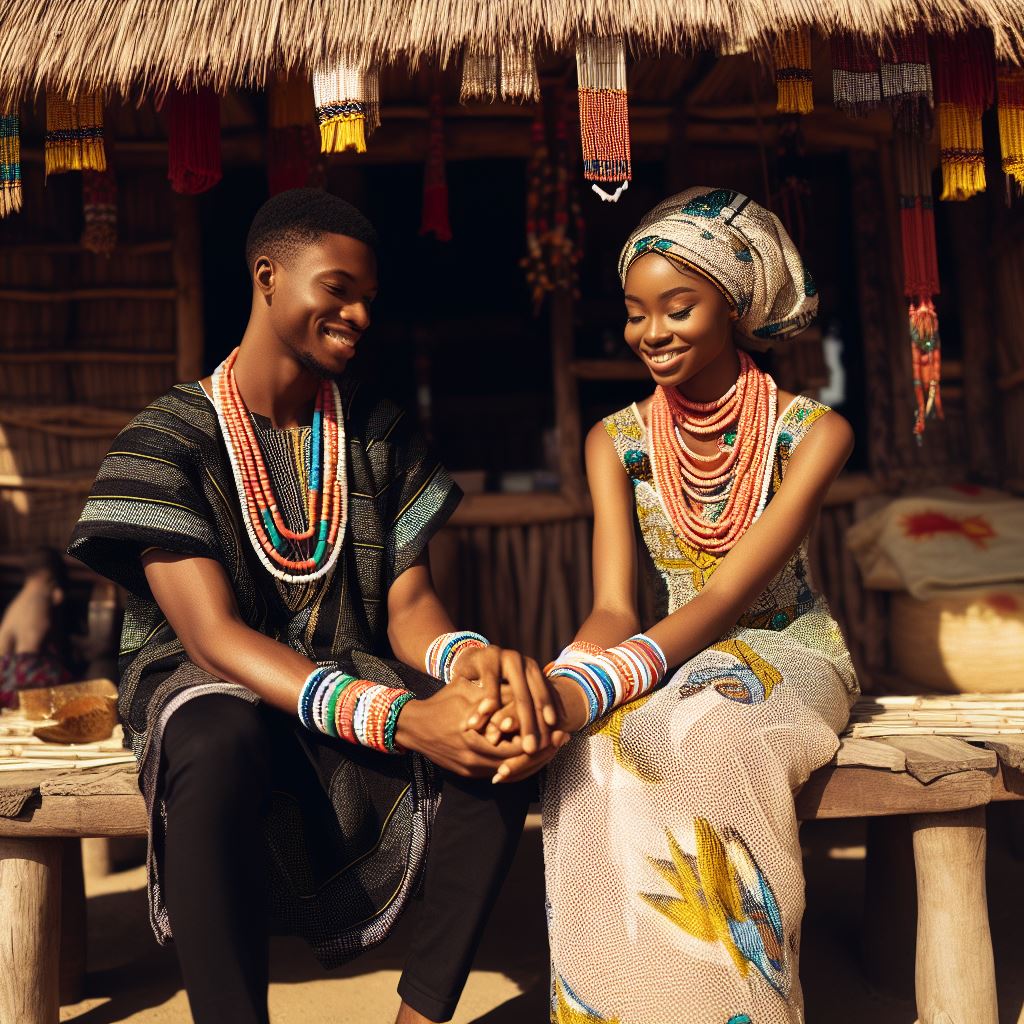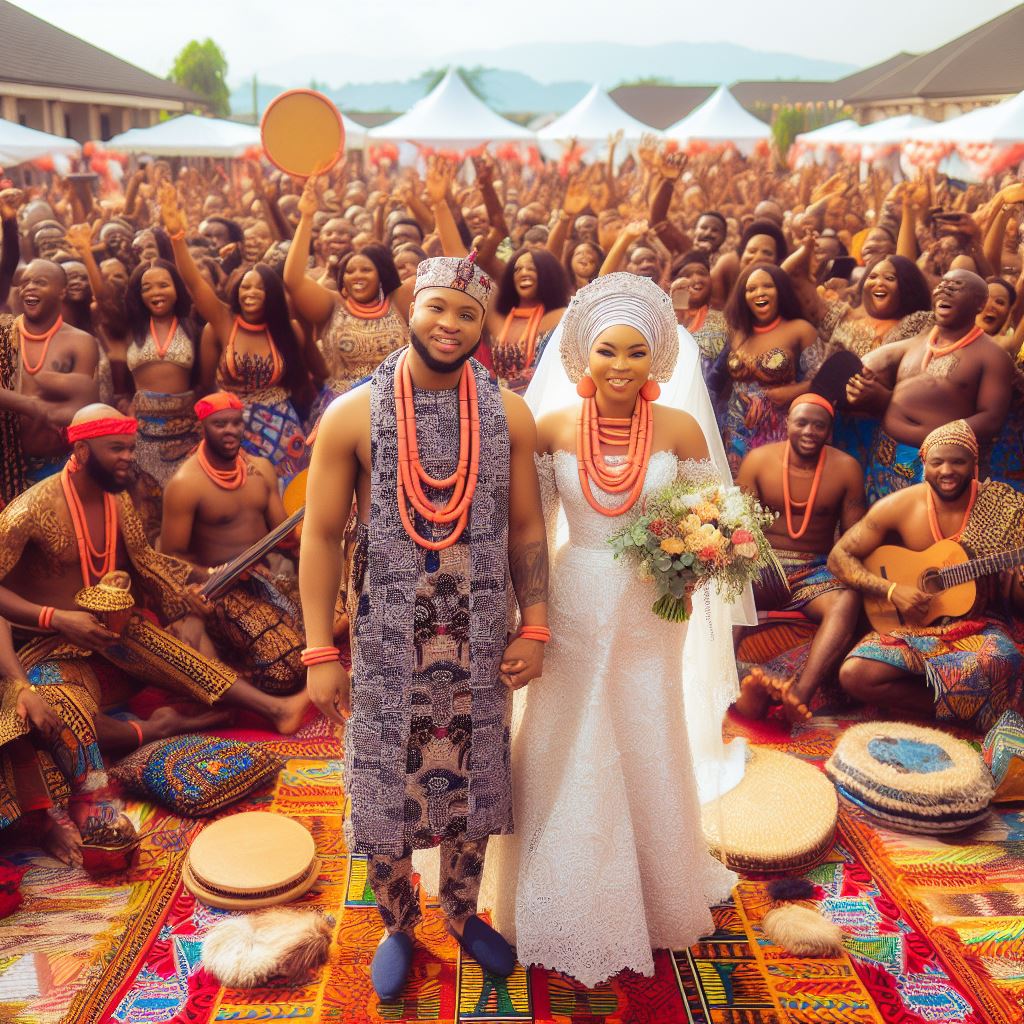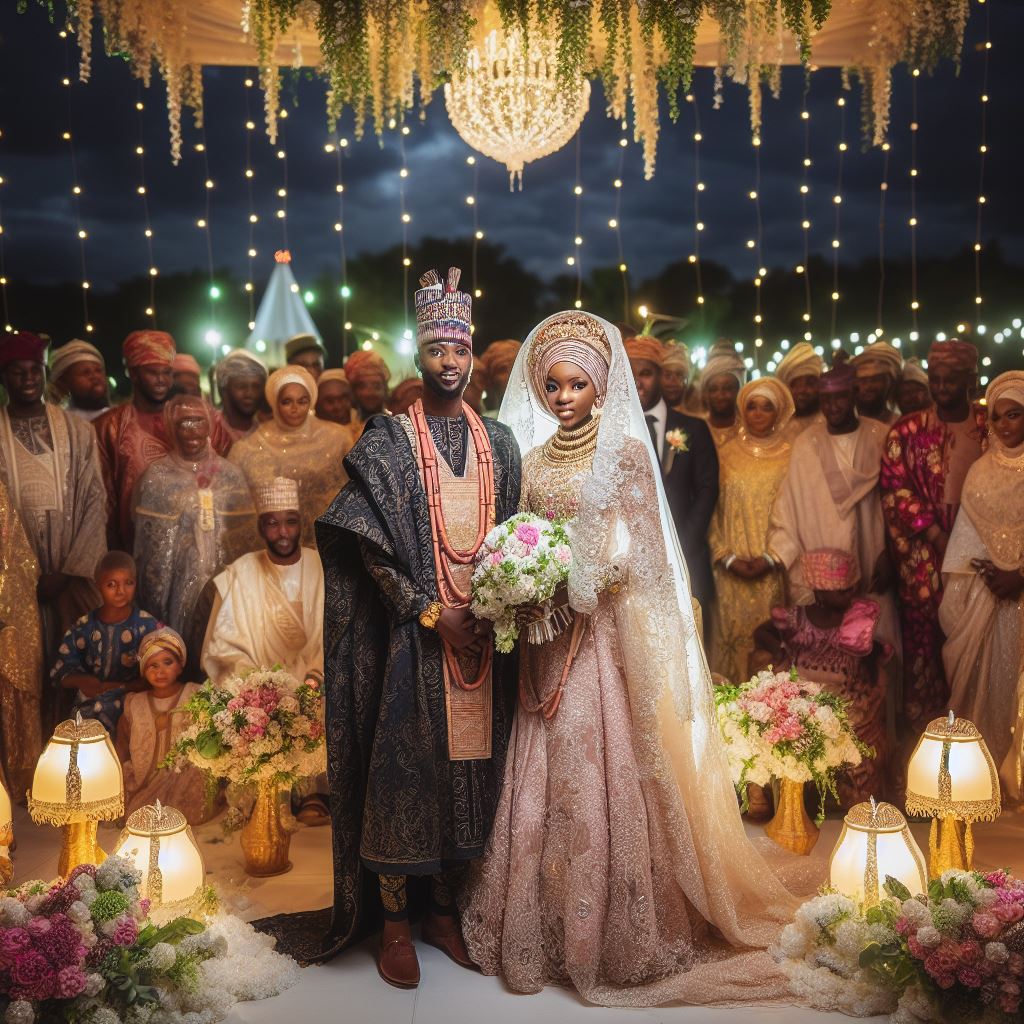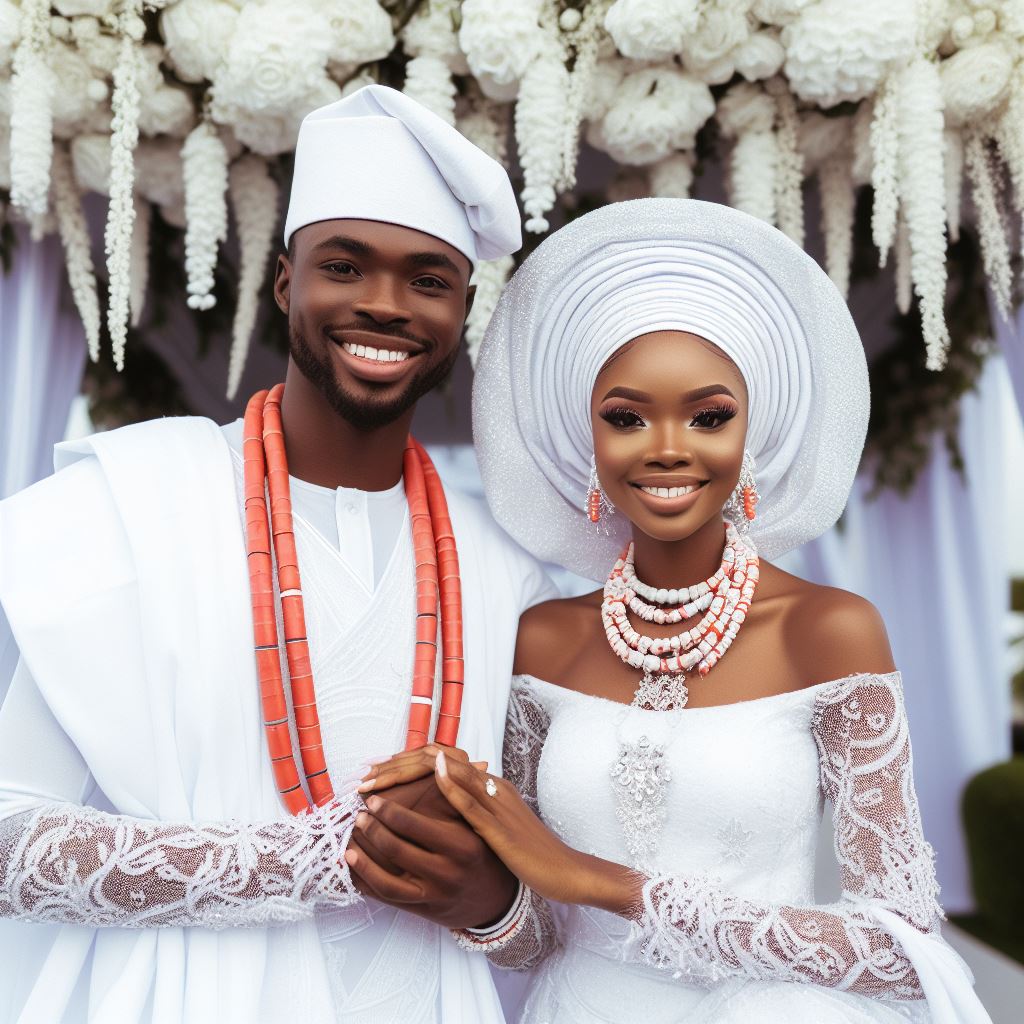Introduction
Let’s explore diamond, gold, or silver? Picking the right material in Nigeria.
Choosing the right material for marriage jewelry is crucial for its significance and importance.
In the heartland of West Africa lies a nation rich in cultural tapestry and diverse traditions – Nigeria.
Within its vibrant borders lies a treasure trove of choices, each more resplendent than the last.
Diamonds that sparkle like the night sky, gold that glows with the warmth of the Saharan sun, and silver, a metal that holds a quiet elegance.
These are not just materials; they are a reflection of heritage, status, and personal taste.
In Nigeria, selecting the right material is akin to curating a piece of art that tells a story, steeped in history and bound by tradition.
Join us on an exploratory journey through the nuances of diamond, gold, and silver, as we unravel the cultural significance and practical considerations that guide this pivotal decision in the realm of adornment and expression in Nigeria.
In Nigerian culture, the choice of diamond, gold, or silver holds great relevance.
Symbolism of Jewelry in Nigerian Weddings
When it comes to Nigerian weddings, jewelry holds immense symbolism and plays a significant role in the celebration.
The jewelry choices made by the bride and groom have deep cultural and traditional significance.
This section takes a closer look at the meaning behind jewelry in Nigerian weddings, the evolution of jewelry choices over time, and the cultural beliefs and superstitions associated with different materials.
Traditional significance of jewelry in Nigerian weddings
- Jewelry has always been an integral part of Nigerian weddings.
- It symbolizes the wealth, status, and beauty of the bride and groom.
- The bride’s jewelry, especially, is considered a reflection of her family’s wealth and social standing.
- It is believed that the more jewelry the bride wears, the more blessings she will receive in her married life.
- The jewelry also serves as a way to showcase the bride’s personal style and taste.
- Traditional Nigerian jewelry often includes pieces such as necklaces, bracelets, earrings, and headpieces.
- These pieces are typically made with precious metals, gemstones, beads, and shells.
- Each piece of jewelry is carefully chosen to complement the bride’s traditional attire and enhance her overall look.
Evolution of jewelry choices over time
- The jewelry choices in Nigerian weddings have evolved over time.
- While traditional pieces still hold importance, modern couples are also incorporating contemporary designs.
- Gold, diamonds, and silver have become more popular choices for wedding jewelry.
- These materials symbolize luxury, elegance, and modernity.
- Couples are often seen opting for intricate designs and statement pieces to make a bold fashion statement.
- There is also a trend of mixing traditional and modern elements to create unique and personalized jewelry.
- Jewelry designers in Nigeria are constantly innovating and experimenting with different materials and styles.
- This allows couples to express their individuality and create jewelry pieces that truly reflect their personalities and preferences.
Cultural beliefs and superstitions associated with different materials
- Nigerian weddings are steeped in cultural beliefs and superstitions when it comes to jewelry materials.
- Gold is often considered the most auspicious and precious metal, symbolizing wealth and prosperity.
- It is believed to bring good luck and blessings to the newlyweds.
- Wearing gold jewelry is also believed to protect against negative energies and evil spirits.
- Silver, on the other hand, is associated with purity, healing, and harmony.
- It is believed to have calming properties and is often worn to ward off negative influences.
- Diamonds, with their extraordinary brilliance, are seen as a symbol of eternal love and strength.
- They are believed to bring clarity, balance, and fidelity to the relationship.
In short, jewelry holds immense symbolism in Nigerian weddings, representing wealth, status, beauty, and personal style.
The choice of jewelry has evolved over time, with modern couples embracing contemporary designs and materials.
Cultural beliefs and superstitions associated with different materials further add depth and significance to the jewelry worn during weddings.
Diamond Jewelry for Nigerian Weddings
History and popularity of diamonds in Nigeria
- Diamonds have a long history in Nigeria, with mining operations dating back to the early 20th century.
- The discovery of large diamond deposits in the country has contributed to its popularity.
- Nigeria is now considered a significant player in the global diamond trade.
Symbolism and meaning of diamonds in Nigerian culture
- Diamonds are highly valued for their brilliance, durability, and rarity, symbolizing wealth and prestige.
- In Nigerian culture, diamonds are associated with power, beauty, and everlasting love.
- They are often used as engagement and wedding rings to signify a lasting commitment.
Advantages and disadvantages of using diamonds for wedding jewelry
Advantages
- Diamonds are extremely durable and will last a lifetime.
- Their allure stands the test of time, destined to become cherished heirlooms for generations to come.
- Diamonds possess a notable resale value, making them a viable investment option.
Disadvantages
- Diamonds can be expensive and may not fit everyone’s budget.
- They require regular maintenance and cleaning to keep their sparkle.
- Conflict diamonds, also known as blood diamonds, are a concern in the diamond industry.
In fact, diamonds have a rich history and significant popularity in Nigeria.
They hold deep symbolism and meaning in Nigerian culture, representing wealth, beauty, and everlasting love.
While there are advantages to using diamonds for wedding jewelry, such as their durability and investment value, there are also disadvantages, including the high cost and maintenance requirements.
Ultimately, the choice of diamond jewelry for Nigerian weddings depends on personal preferences and budget considerations.
Read: Anniversary Wishes: Infusing Hausa Traditions
Gold Jewelry for Nigerian Weddings
Cultural and historical significance of gold in Nigeria
- Gold has deep cultural roots in Nigeria, dating back to ancient civilizations.
- It was associated with wealth, power, and prestige, often worn by kings and nobility.
- The craftsmanship and intricate designs of traditional Nigerian gold jewelry reflect its rich history.
- Gold symbolizes prosperity, abundance, and fortune, making it a highly sought-after material.
Symbolism and meaning of gold in Nigerian weddings
- Gold in Nigerian weddings carries profound symbolism, believed to bestow blessings upon the couple.
- It represents the sacredness of the union, symbolizing the purity and eternal love between partners.
- Gold jewelry showcases the couple’s wealth and social status, adding glamour to the wedding ceremony.
- Employing gold is a cherished means of honoring and paying tribute to the revered traditions of Nigeria.
Advantages and disadvantages of using gold for wedding jewelry
Advantages
- Gold, known for its enduring nature, is an ideal choice for crafting jewelry that will be treasured across generations.
- Its timeless beauty and elegance make gold jewelry a classic choice for Nigerian weddings.
- The versatility of gold knows no bounds, offering a canvas for a myriad of designs and enabling exquisite customization.
- Blending seamlessly with various gemstones and metals, it effortlessly crafts distinctive and elaborate pieces.
- Owning gold jewelry is considered a sound investment as its value tends to appreciate over time.
Disadvantages
- Compared to other materials, gold often comes with a relatively higher price tag, which can pose affordability challenges for some individuals.
- It can be heavy to wear, causing discomfort for those who prefer lighter options.
- Gold jewelry requires proper care and maintenance to prevent tarnishing or scratching.
- Due to its value, gold jewelry may attract unwanted attention and pose a security risk.
- Some individuals may prefer alternative materials for personal or cultural reasons.
Gold jewelry holds cultural and historical significance in Nigeria.
Its symbolism and meaning in Nigerian weddings make it a popular choice among couples.
While gold jewelry offers many advantages such as durability, elegance, and investment value, it also has a few drawbacks.
The cost, weight, and maintenance requirements of gold may deter some individuals from choosing it as their wedding jewelry material.
Ultimately, the decision should be based on personal preferences, cultural significance, and budget considerations.
Read: Real Stories: Nigerian Couples Who Chose to Marry Immediately
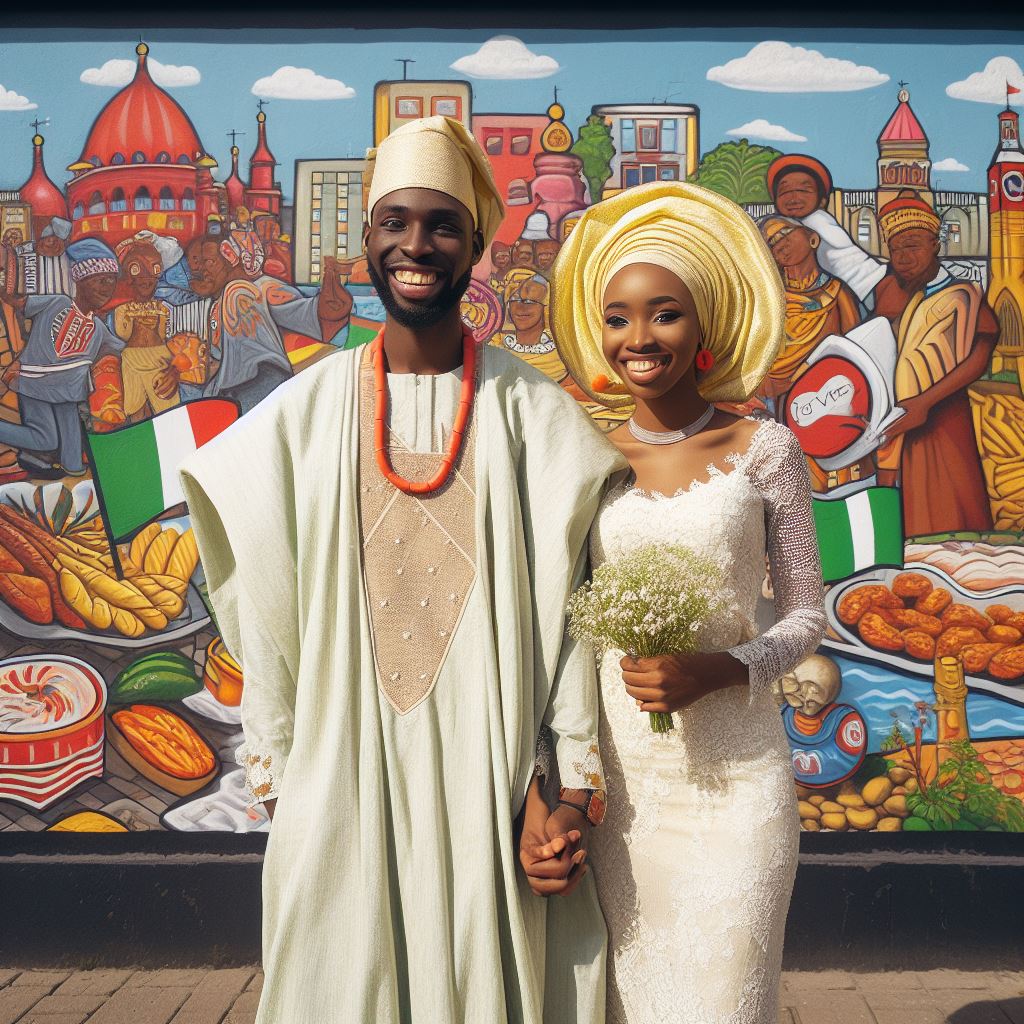
Silver Jewelry for Nigerian Weddings
Cultural and historical context of silver in Nigeria
- Silver has a rich cultural and historical significance in Nigeria.
- For ages, it has been an integral part of customary Nigerian ceremonies and rituals.
- Silver holds a prominent place in Nigerian folktales and myths.
- It held a revered status as a precious metal, embodying both wealth and a symbol of elevated social standing.
Symbolism and meaning of silver in Nigerian culture
- Within Nigerian culture, silver embodies notions of purity and spirituality.
- It is believed to possess healing properties and ward off evil spirits.
- In the realm of traditional Nigerian jewelry, silver emerges as a cherished symbol of both strength and beauty.
- It represents elegance, grace, and sophistication.
Advantages and disadvantages of using silver for wedding jewelry
Advantages
- Silver, a pliable metal, lends itself effortlessly to the creation of intricate designs.
- It offers a more budget-friendly alternative when compared to both diamonds and gold.
- Silver jewelry has the beautiful capacity to become cherished heirlooms, infused with profound sentimental value.
- It complements various skin tones and outfits, making it suitable for all brides.
Disadvantages
- Silver is prone to tarnishing and requires regular cleaning to maintain its shine.
- It may not be as durable as gold or platinum and can scratch easily.
- Some people may have allergies or sensitivities to silver jewelry.
- The value of silver may fluctuate in the market, affecting its resale value.
In review, silver jewelry holds cultural, historical, and symbolic significance in Nigerian weddings.
It adds elegance and sophistication to the bride’s attire while also representing purity and spirituality.
The advantages of using silver include its affordability, versatility, and sentimental value, but there are also disadvantages such as tarnishing and potential allergies.
Despite these disadvantages, silver remains a popular choice for Nigerian brides due to its deep-rooted cultural importance and aesthetic appeal.
Read: Understanding Biblical Marriage: A Deep Dive into Genesis
Factors to Consider When Choosing the Right Material
Personal preference and style
- Determine your personal style and preferences before deciding on a material for jewelry.
- Consider the type of jewelry that suits your style, whether it’s a necklace, ring, bracelet, or earrings.
- Explore different designs and aesthetics to find a material that aligns with your fashion sense.
- Choose a material that complements your skin tone and enhances your overall appearance.
Budget and affordability
- Establish a budget before shopping for jewelry materials to avoid overspending.
- Compare the prices of diamonds, gold, and silver to determine which material fits your budget.
- Consider the cost of any additional gemstones or embellishments you may want to include.
- Don’t forget to take into account the price of maintenance and repairs for each material.
Maintenance and durability of different materials
- Research the maintenance requirements of each material and consider your willingness to properly care for your jewelry.
- Diamonds are the most durable material and require the least maintenance.
- Gold is a softer metal and may need more frequent maintenance to avoid scratches or damage.
- Silver is prone to tarnishing and requires regular cleaning to maintain its shine.
- Consider the lifestyle factors that may affect the durability of your jewelry, such as daily wear or physical activities.
Cultural and family expectations
- Take into account any cultural or family expectations related to jewelry materials.
- Some cultures may have specific symbolic meanings or traditions associated with certain materials.
- Discuss your choices with family members or loved ones to ensure they align with your cultural and family values.
- Respect and honor any cultural or family expectations while still choosing a material that you personally love.
Ultimately, choosing the right material for your jewelry in Nigeria involves considering personal preference, budget, maintenance needs, and cultural expectations.
By carefully weighing these factors, you can select a material that reflects your individual style and values.
Read: A Comparative Analysis: Marriage Duas vs. Love Spells
Conclusion
Choosing the perfect material for wedding jewelry in Nigeria is of utmost importance.
It is crucial for readers to consider their personal preferences and cultural significance when making a decision.
My final thoughts and advice would be to take the time to select the perfect material for their special day.

